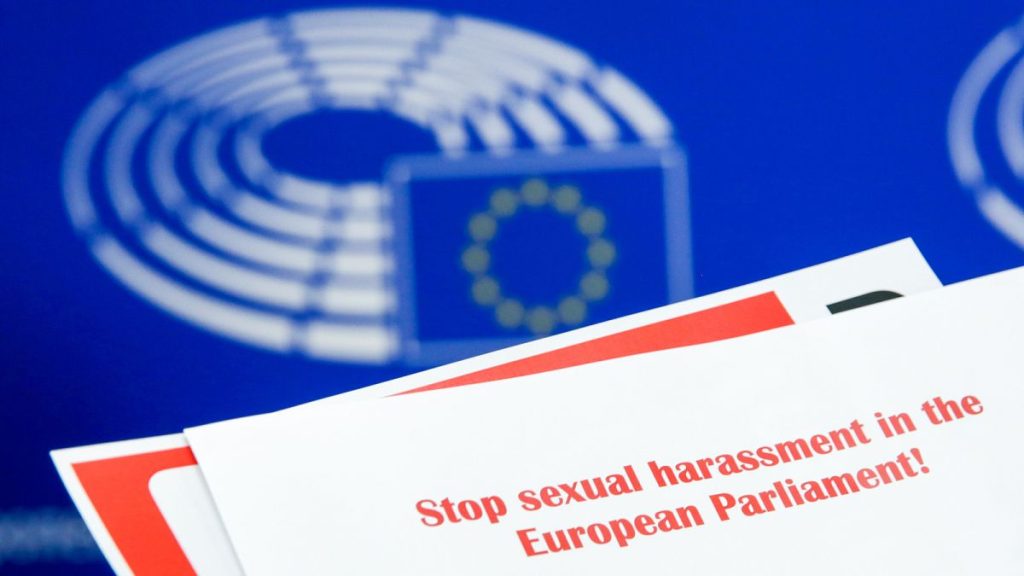As the mandate of the European Parliament draws to a close, allegations of corruption, misconduct, and undue influence have plagued EU lawmakers. The parliament has attempted to implement reforms aimed at holding the next chamber accountable, but political infighting has compromised the effectiveness of these measures. Investigative platform Follow the Money revealed that a quarter of current MEPs have been involved in various scandals, from sexual harassment to nepotism and bribery. In response to these issues, lawmakers voted on new anti-harassment training and the creation of an ethics watchdog, but these proposals have been diluted, leading to skepticism about their impact on addressing impunity within the European democracy.
The new anti-harassment training rule requires MEPs to undergo training within the first six months of their mandate in order to hold leadership roles, but sanctions were removed for those who choose to skip it. Critics see this as a weakened measure, lacking consequences to enforce compliance. While some view it as progress, with MEP Gabriele Bischoff calling it a “big step,” there is recognition that more needs to be done to address the pervasive issue of harassment within the parliament. The MeToo EP movement conducted a survey revealing high rates of psychological and sexual violence or harassment among parliament staffers, highlighting the need for a cultural shift and a more effective system to address these issues.
Allegations of bullying and harassment among MEPs have garnered attention, with at least seven lawmakers facing investigations or sanctions for various misconduct. The recent case involving German Green MEP Malte Gallée, who renounced his seat following allegations of inappropriate behavior, underscores the ongoing challenges within the parliament. Despite efforts to address harassment, concerns persist about the lack of accountability and cultural barriers that prevent meaningful change. Bischoff criticized attempts by some political factions, like the EPP, to politicize the issue, emphasizing that it affects all parties and is a serious workplace health and safety concern.
The approval of a new EU ethics body, intended to address the Qatargate cash-for-influence scandal, represents a significant step towards improving ethical standards among political officials. This body mandates binding ethical rules for accepting gifts, managing conflicts of interest, and enforcing a cooling-off period after leaving office. However, the absence of independent investigative or sanctioning powers, coupled with doubts about enforcement across institutions and the Council’s non-participation, raises questions about the effectiveness of this watchdog. Analysts suggest that the new body may not go far enough in addressing corruption and maladministration allegations within the EU.
Rapporteur Daniel Freund, representing the German Greens, described the ethics watchdog as a response to the culture of impunity and lack of transparency within the EU. Despite these intentions, concerns remain about the body’s limited authority and the unwillingness of MEPs to commit to higher ethical standards, such as banning paid side jobs to prevent conflicts of interest. The need for a more streamlined approach to address corruption and uphold democratic values is emphasized by experts like Julia Pocze, who view the ethics body as just one component in a complex landscape of integrity and accountability challenges. As the European Parliament approaches new elections, the effectiveness of these reforms and the commitment of lawmakers to uphold ethical standards will be closely monitored by activists and critics seeking to promote transparency and integrity within the EU institutions.


